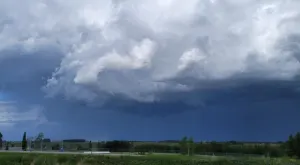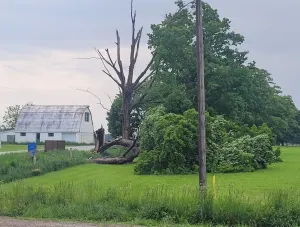Active AlertsEnterprise, NT
Listen to your body and if you experience symptoms, reduce or stop outdoor activities. Symptoms can include milder and more common symptoms such as eye, nose and throat irritation, as well as serious but less common symptoms such as chest pains or severe cough. If you think you are having a medical emergency, seek immediate medical assistance.
Limit time outdoors. Consider rescheduling or cancelling outdoor sports, activities and events.
When indoors, keep windows and doors closed as much as possible. When there is an extreme heat event occurring with poor air quality, prioritize keeping cool. Always seek out and follow health guidance from local authorities.
Protect your indoor air from wildfire smoke. Actions can include using a clean, good quality air filter in your ventilation system and/or a certified portable air purifier that can filter fine particles.
If you must spend time outdoors, a well-constructed, well-fitting and properly worn respirator type mask (such as a NIOSH-certified N95 or equivalent respirator) can reduce your exposure to the fine particles in the smoke. Even though exposure may be reduced, there can still be risks to health.
Check in on others who are in your care or live nearby who may be more likely to be impacted by wildfire smoke.
Take care of your mental health.
Learn more at https://www.canada.ca/wildfire-smoke.
Smoke from wildfires near the Alberta and Northwest Territories border is causing very poor air quality and reduced visibility.
Conditions are expected to improve by Wednesday morning as a shift in wind direction will move the smoke out of the area.
Air quality and visibility due to wildfire smoke can fluctuate over short distances and can vary considerably from hour to hour.
###
During heavy smoke conditions, everyone is at risk regardless of their age or health. The fine particles in wildfire smoke pose the main health risk.
People more likely to be impacted by wildfire smoke such as seniors, pregnant women and pregnant people, people who smoke, infants and young children, people who work outdoors, people involved in strenuous outdoor exercise and people with an existing illness or chronic health condition, should avoid strenuous activities outdoors.
For more information on air quality and your health, please visit the Northwest Territories Department of Health and Social Services at https://www.hss.gov.nt.ca/en/services/environmental-health/air-quality.
Visit http://www.airhealth.ca for information on how to reduce your health risk and your personal contribution to pollution levels, as well as for current and forecast AQHI values.
Please continue to monitor alerts and forecasts issued by Environment Canada.









